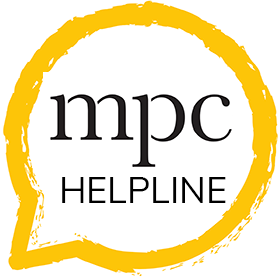What is stammering?
Find information here about developmental and acquired stammering, for GPs and other professionals.
Developmental stammering
Overt features
A person who stammers may, or may not:
- repeat whole words, e.g. “and, and, and, then I left”
- repeat single sounds or syllables, e.g. “p-p-project”
- prolong or stretch sounds, e.g. “sssssssometimes I go out”
- block, where the mouth is in position, but no sound comes out
- look as though they are tensing up or pushing hard. Often this can be seen around the eyes, nose, lips or neck but it can be seen anywhere in the body
- try to physically push the word out by making other movements. e.g. stamping a foot, shifting body position, nodding their head or jerking their head to one side, screwing up their eyes, tapping with a finger against something, clenching a fist or making other gestures with their hands
- do things because they are feeling self-conscious about stammering, e.g. looking down or away or covering their mouth
- breathe in an unusual way i.e. hold their breath while speaking, talk to the end of their breath and then take a gasp, or take an exaggerated breath before speaking
Covert features
A person who stammers may, or may not:
- feel anxious, worried, frustrated, self-conscious, embarrassed, ashamed, angry or even guilty about stammering
- worry about how people will react if they stammer
- worry about what people will think of them if they stammer
- hold a belief that they are not good at talking, that it is not ok to stammer, that there are things that they can not do because of stammering
- choose different words in order to avoid stammering
- find ways to avoid speaking or say as little as possible
- avoid some speaking situations i.e. by sending emails instead of making a phone call, by saying as little as possible in meetings or avoiding roles in work that would involve public speaking.
Things to be aware of
Stammering can severely impact a child‘s, young person’s or adult’s wellbeing and their ability to communicate and participate in everyday life.
Even very young children can be aware of stammering.
Although many young children stop stammering within a year or so of starting, not all do. It is not appropriate to take a “wait and see” approach. If a parent is worried then referral on is appropriate.
Some adults who stammer experience social anxiety related to stammering, even if their outward stammer appears relatively mild.
Acquired stammering
Stammering which starts after the age of 12 years where there is no previous history of stammering is known as acquired stammering.
It can be due to neurological or psychological factors.
Stammering associated with acquired neurological disorders
Causes
- degenerative conditions (i.e. Parkinson’s, brain tumour, seizure disorder)
- acute conditions (TBI, stroke, neurosurgery)
- side effect of medication or recreational drugs
- chronic pain or headache
Incidence and prevalence
- little is known
- higher incidence in males
- higher incidence post stroke (with aphasia)
Actions
- refer for full neurological assessment
- refer to speech and language therapy if they are not already involved
Acquired psychogenic stammering / Functional stammering
Stammering can arise following periods of acute or sustained psychological stress, or in association with psychiatric disorders.
Onset is often sudden and related to a specific event or history of stress.
Incidence and prevalence
- unknown
- more common in women
- high incidence linked to PTSD and history of abuse
Actions
While a speech therapist’s opinion can contribute to an overall clinical picture and potentially treatment, referral to clinical psychology is recommended when psychological trauma is involved.

Sometimes you just need someone to talk to


Sometimes you just need someone to talk to
Our Helpline, 020 3316 8100, is open during office hours (9am-5pm) and voicemail messages can be left when the office is closed.
“It helped me to realise that I’m not alone and that there is help out there.”
